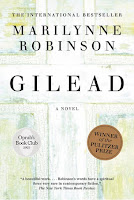In the
March 11 edition of her e-newsletter “The Cottage” Diana Butler Bass writes:
“War is a sin. War is evil. And yet it continues. War is one of the rare things in human history that doesn’t vary. It is what humans do... You might say that our inhumanity to others is a sobering characteristic of being human. That’s really depressing. And it is painfully true.”
It is my firm belief that pacifism is the most faithful way to follow Jesus Christ. Violence of any sort is incompatible with the Jesus I meet in the Gospels. And yet when I see things like the Russian invasion of Ukraine, or the Rwandan genocide, or almost innumerable other examples of one group using violence against another there is a part of me that wants to call out for the use of violence and force to protect the vulnerable. Do we have a duty to protect, even when the only way to do that is inflict pain on another?
What is our best response when we see evil being lived out in the world?
In that same e-newsletter Bass explicitly names what is happening in Ukraine as sinful and evil. She also predicts that it will get worse. Since it arrived in my mailbox the news reports out of Mariupol have proved that prediction accurate. Siege warfare has always been a brutally and punishing form of conflict. It has always meant that non-combatants are going to be killed and wounded. This was true in medieval Europe, in Aleppo a few years ago, and in Mariupol today. Deep in the evil and sinfulness of warfare is the fact that non-combatants are killed, wounded, left homeless, have their lives destroyed.
So what is our faithful response when we see evil being lived out in the world? Do we respond with thoughts and prayers and protests? Do we volunteer to be observers and human shields? Do we resort to the use of violence ourselves to counter the violence we wish to end?
To be honest I find myself conflicted on this one. As I said earlier, I honestly believe that the most faithful way to follow the path laid out by Christ is pacifism. Before being accepted and co-opted by the Emperor Constantine the church was a pacifist group. In the earliest church you could not be both Christian and soldier. At the same time extreme pacifism seems a little bit idealistic in the face of the evil done by empires in our world. What can we do?
To begin with we need to be ready to tell the truth about what we see. As people of faith we need to be ready to name the evil that is being done, no matter who is doing it. Even if it is done in the name of faith. Even if it is done by the empire we support (though it could be argued that to faithfully follow Christ means we support no empire). And then we need to make a stink, shout out into the world, refuse to be silenced. We need to speak truth to power and call people to account for their actions. It is the least we can do. Maybe it is the best we can do, or maybe we need to call for more concrete responses.
Right now we have evil happening and making the front pages. Because there is such a strong connection between Canada, especially in the prairie provinces, and Ukraine we have a heightened sense of outrage. Some call for more militant action, some prepare to support refugees either in Europe or here in Canada. As a multi-national society we are trying to determine how we will respond. Is a no-fly zone the best response? Will other nations need to put boots on the ground? Will those things contain the evil or make it worse? These are complicated questions with no really clear answers.
There is evil happening elsewhere in the world that does not make our front pages. Aleppo was besieged for years during the Syrian Civil War. Terrible things have been happening in Yemen for years. The same thing can be said of Gaza. The invasions of Iraq and Afghanistan earlier this century led to great evil. How did we respond then? How can we respond to the evil that continues?
As a follower of Christ I am called to seek justice and resist evil. As a follower of Christ I am called to proclaim that there is another path to follow. Invasion and warfare, violence that destroys lives, is evil and sinful and wrong. The challenge is to figure out how Christ wants me to respond to that evil.
May God help us all.













